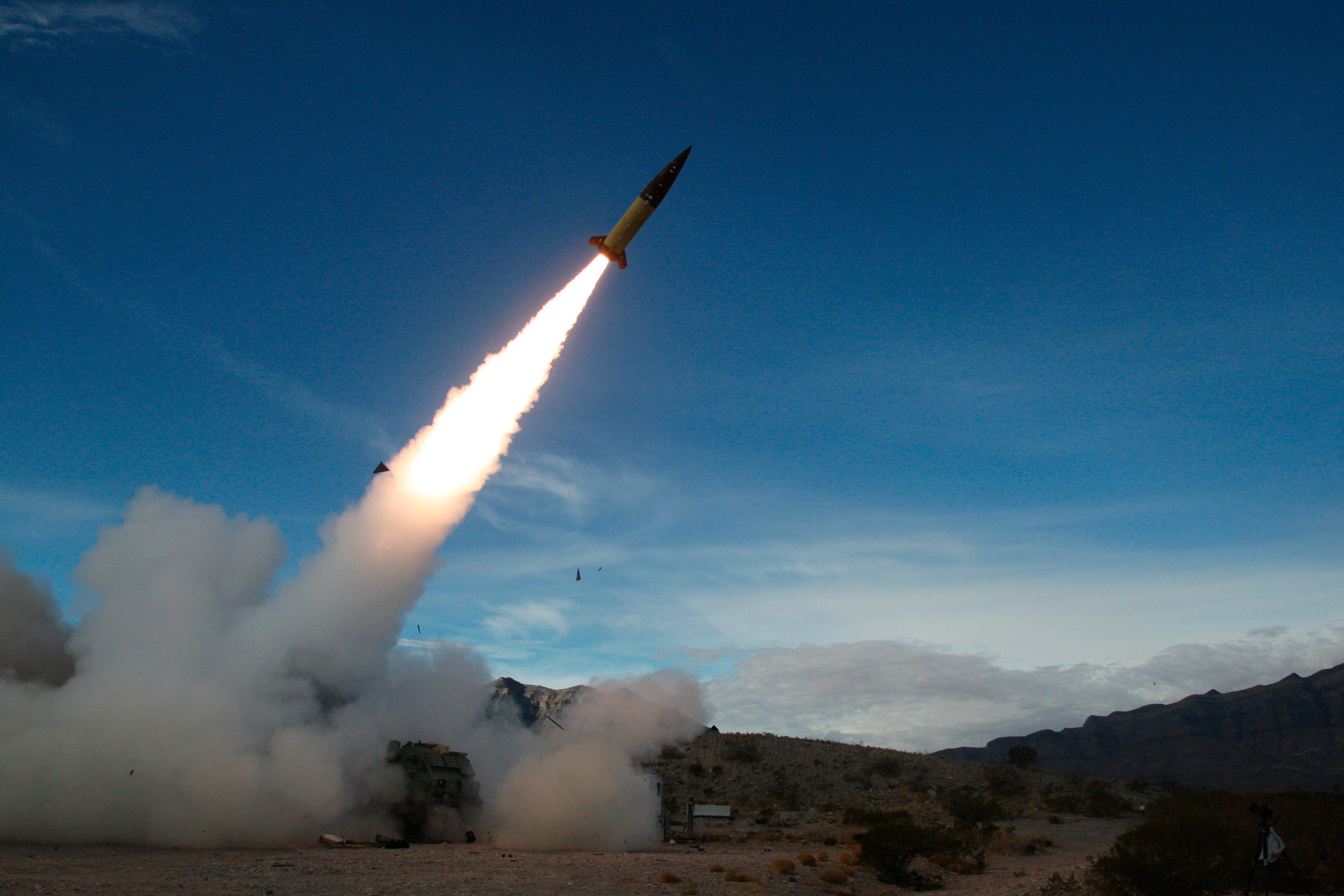Biden approves Ukraine’s use of long-range missiles to strike inside Russia for first time
The move by the United States comes two months before President-elect Donald Trump takes office
Your support helps us to tell the story
From reproductive rights to climate change to Big Tech, The Independent is on the ground when the story is developing. Whether it's investigating the financials of Elon Musk's pro-Trump PAC or producing our latest documentary, 'The A Word', which shines a light on the American women fighting for reproductive rights, we know how important it is to parse out the facts from the messaging.
At such a critical moment in US history, we need reporters on the ground. Your donation allows us to keep sending journalists to speak to both sides of the story.
The Independent is trusted by Americans across the entire political spectrum. And unlike many other quality news outlets, we choose not to lock Americans out of our reporting and analysis with paywalls. We believe quality journalism should be available to everyone, paid for by those who can afford it.
Your support makes all the difference.Joe Biden has authorised Ukraine’s use of long-range missiles to strike hundreds of miles inside Russia for the first time, according to reports.
The decision marks a major policy shift and comes after Russia warned that Moscow would see the move to allow the use of US-made missiles as an “escalation.” With Biden leaving office in two months, president-elect Donald Trump has indicated he will limit American support for Ukraine and pledged end the war quickly once he takes office in January.
But Ukrainian President Volodymyr Zelensky has campaigned for months to allow Ukraine’s military to use US weapons to hit Russian military targets far from its border, and retains important allies in both parties in Congress.
He said Sunday evening that the strikes, if carried out, would "speak for themselves." But he did not confirm the authorization directly.
"Today, many in the media are saying that we have received permission to take appropriate actions," he said. "But strikes are not made with words. Such things are not announced."
A National Security Council spokesperson declined to comment when contacted by The Independent Sunday afternoon. Two unnamed senior US officials confirmed the change in policy to the Washington Post on Sunday.

A source close to Downing Street said on Sunday that the office was monitoring the situation closely.
The change follows Russia’s deployment of North Korean ground troops to supplement its own forces, a development that has caused alarm in Washington and Kyiv.
One US official confirmed to the Post that the shift in policy was aimed at deterring further deployments of North Korean troops — including units described as the country’s “elite” special forces
The first deep strikes are likely to be carried out using ATACMS rockets, which have a range of up to 190 miles (306 km), according to the sources.
While some US officials have expressed scepticism that allowing long-range strikes will change the war’s overall trajectory, the decision could help Ukraine at a moment when Russian forces are making gains and possibly put Kyiv in a better negotiating position when and if ceasefire talks happen.
Vladimir Dzhabarov, first deputy head of the Russian upper house’s international affairs committee, warned the move would instead risk triggering World War Three, and vowed that Russia would respond.
It is not clear if Trump will reverse Biden’s decision when he takes office. Trump has long criticised the scale of financial and military aid to Ukraine and has vowed to end the war quickly, without explaining how.
Richard Grenell, who was widely considered as an option for the Secretary of State job before it was snatched up by Marco Rubio, accused Biden on “escalating the wars before he leaves office” in a post on X.
The president-elect has also repeatedly slammed the Biden administration for giving Kyiv tens of billions of dollars in aid. His election victory has Ukraine’s international backers worrying that any rushed settlement would mostly benefit Putin.

Join our commenting forum
Join thought-provoking conversations, follow other Independent readers and see their replies
Comments